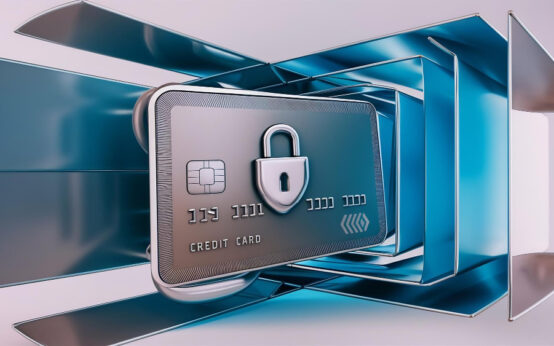Finding the right credit card when you have a bad credit score can be daunting. However, with the right guidance, you can find credit cards for bad credit that can help you rebuild your financial standing. In this post, we will explore the best credit cards for bad credit, what to consider when choosing one, and common mistakes to avoid.
What to Look for in a Credit Card for Bad Credit
When choosing a credit card for bad credit, it’s crucial to consider certain aspects to ensure you select the best option. Here are the key factors:
Annual Fees and Interest Rates
Many cards designed for bad credit have higher annual fees and interest rates. Compare different cards to find ones with lower costs to help you save money.
Security Deposit
For secured credit cards, you will need to provide a security deposit, which typically ranges from $200 to $500. Ensure the deposit requirement fits your budget.
Credit Reporting
It’s essential to choose a card that reports to all three major credit bureaus. This reporting helps you improve your credit score as you make on-time payments.
Reward Programs
While less common in credit cards for bad credit, some do offer reward programs. Look for cards that provide cashback or other rewards to maximize your benefits.
Customer Support
Reliable customer support is a key factor. Good support can assist with any issues and provide guidance on improving your credit.
Additional Features
Look out for additional features such as fraud protection, free credit score monitoring, and educational resources on credit management. These features can be beneficial as you work to rebuild your credit.
By considering these factors, you can make an informed decision on a credit card that will support your journey toward better credit.
Top 5 Credit Cards for Bad Credit in 2023

Choosing the right credit card for bad credit can be challenging. In 2023, several options stand out for those looking to rebuild their credit. Here are the top 5 credit cards that can help you get back on track:
1. Discover it® Secured Credit Card
This card is a great option as it offers cash back rewards and has no annual fee. It’s designed for individuals with bad credit and helps you build credit with responsible use.
2. Capital One® Secured Mastercard®
With a low security deposit and access to a higher credit line after making your first five monthly payments on time, this card is perfect for rebuilding credit.
3. OpenSky® Secured Visa® Credit Card
This card doesn’t require a credit check for application, making it accessible to most applicants. It’s ideal if your credit score is very low or if you have no credit history.
4. Green Dot® Primor® Visa® Gold Secured Credit Card
Offering one of the lowest interest rates in the secured credit card market, this card is beneficial for those who carry a balance month to month.
5. Indigo® Platinum Mastercard®
This card is a solid choice for those with bad credit, as it’s designed specifically for rebuilding credit and offers pre-qualification to see if you qualify without impacting your credit score.
When choosing a credit card for bad credit, consider factors such as fees, interest rates, and the opportunity to graduate to an unsecured card. Making timely payments and managing your balance are crucial steps to improving your credit score.
How to Improve Your Credit Score with Credit Cards
Understanding Your Current Credit Score
Before you can improve your credit score, you need to know where you stand. Obtain a free copy of your credit report from annualcreditreport.com. Check for any inaccuracies and disputes.
Using Credit Cards Wisely
Pay on Time: Payment history is a crucial factor in your credit score. Ensure you never miss a payment. Keep Balances Low: A low credit utilization ratio positively affects your score. Aim to use less than 30% of your available credit. Choose the Right Card: Opt for credit cards specifically designed for individuals with bad credit. These cards often offer lower limits and higher interest rates but can be helpful for rebuilding your score. Limit New Applications: Each credit inquiry can temporarily lower your score. Apply for new credit sparingly. Consider Secured Cards: These require a deposit but can be easier to obtain and can help improve your credit score over time. Monitor Your Progress: Regularly review your credit report to track improvements and catch potential issues early.
Common Mistakes to Avoid with Credit Cards for Bad Credit

One of the most frequent pitfalls is missing payments. Even one missed payment can severely impact your credit score. It’s crucial to make at least the minimum payment on time. Another mistake is maxing out your credit limit. High credit utilization can negatively affect your score. Aim to keep your balance under 30% of your limit. Additionally, avoid applying for multiple credit cards in a short period. Each application results in a hard inquiry, which can lower your score temporarily. Lastly, be cautious of high fees and interest rates. Not all credit cards for bad credit have the same terms, so read the fine print to avoid unexpected charges.
Secured vs. Unsecured Credit Cards: Which is Better?
Understanding Secured Credit Cards
Secured credit cards require a cash deposit, which serves as collateral for your credit limit. This deposit minimizes the risk for the issuer, making secured cards more accessible for individuals with bad credit. The deposit amount typically ranges from $200 to $2,000, and your credit limit is usually equal to your deposit. Although you need to put down a security deposit, secured credit cards can help you build or rebuild your credit score if used responsibly.
Benefits of Secured Credit Cards
- Accessible Approval: Easier to obtain with poor credit.
- Credit Building: Helps improve credit score with responsible use.
- Low Risk: Minimal risk to creditors, reducing the chances of rejection.
Drawbacks of Secured Credit Cards
- Initial Deposit: Requires upfront cash for the security deposit.
- Limited Credit Limit: Credit limit often equal to the deposit amount.
- Fees: May come with annual fees or other charges.
Understanding Unsecured Credit Cards
Unsecured credit cards do not require a security deposit and are based on the card issuer’s evaluation of your creditworthiness. These cards are harder to obtain if you have bad credit, but they offer several advantages, such as higher credit limits and more rewards options. However, approval for unsecured credit cards often hinges on your credit history, income, and other financial factors.
Benefits of Unsecured Credit Cards
- No Deposit: Does not require an upfront cash deposit.
- Higher Credit Limits: Often come with higher credit limits than secured cards.
- Rewards: Eligibility for rewards programs and benefits.
Drawbacks of Unsecured Credit Cards
- Harder Approval: More challenging to obtain with poor credit.
- High Interest Rates: May come with higher interest rates compared to secured cards.
- Fees: Potential for higher fees and penalties.



 Best credit cards secured: your path to a stronger credit history <p style='text-transform:none; line-height:20px !important; font-size:16px; font-weight:normal; color:#424242; margin: 0px; margin-top:10px;'>They offer a smart way to show lenders you’re serious about managing your finances.</p>
Best credit cards secured: your path to a stronger credit history <p style='text-transform:none; line-height:20px !important; font-size:16px; font-weight:normal; color:#424242; margin: 0px; margin-top:10px;'>They offer a smart way to show lenders you’re serious about managing your finances.</p>  The best credit cards for lounge access: your key to premium airport comfort <p style='text-transform:none; line-height:20px !important; font-size:16px; font-weight:normal; color:#424242; margin: 0px; margin-top:10px;'>With these cards, you have exclusive access to lounges, offering comfort while you wait for your flight.</p>
The best credit cards for lounge access: your key to premium airport comfort <p style='text-transform:none; line-height:20px !important; font-size:16px; font-weight:normal; color:#424242; margin: 0px; margin-top:10px;'>With these cards, you have exclusive access to lounges, offering comfort while you wait for your flight.</p>  Safe, simple, and fun: discover the best debit cards for kids <p style='text-transform:none; line-height:20px !important; font-size:16px; font-weight:normal; color:#424242; margin: 0px; margin-top:10px;'>These cards offer the flexibility and convenience that both parents and kids need.</p>
Safe, simple, and fun: discover the best debit cards for kids <p style='text-transform:none; line-height:20px !important; font-size:16px; font-weight:normal; color:#424242; margin: 0px; margin-top:10px;'>These cards offer the flexibility and convenience that both parents and kids need.</p>